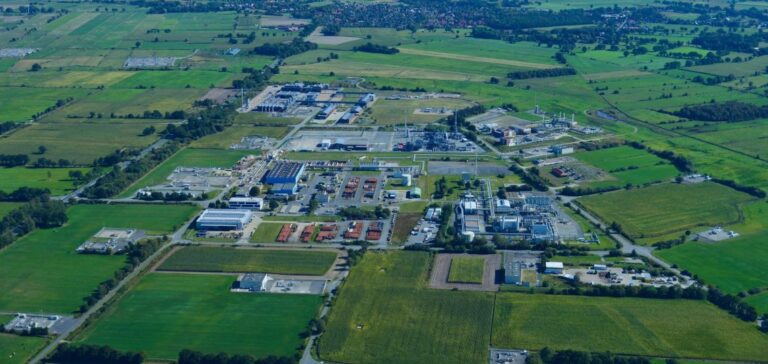STORAG ETZEL, a key player in underground energy storage, has recently reached a significant milestone in its H2CAST Etzel project. This initiative, focused on converting salt caverns for hydrogen storage, enabled the injection of the first tonnes of hydrogen into the facilities located in the Etzel cavern field. Eventually, 90 tonnes of hydrogen will be stored, representing a major step forward for this strategic technology.
The process began with hydrogen compressed to 300 bars being transported by truck trailers, allowing the brine in the caverns to be replaced with gaseous hydrogen. According to Carsten Reekers, project manager at STORAG ETZEL, leakage tests carried out in 2024 on two caverns confirmed the ability of the existing infrastructure to support this new energy format.
Overcoming supply challenges
Despite a hydrogen market still in its infancy, STORAG ETZEL has overcome initial procurement challenges and has already stored several tonnes of hydrogen at a maximum pressure of 170 bars. The company plans to intensify its injection operations with up to three weekly truck deliveries by summer, requiring a total of 200 shipments to complete the cavern filling process.
Challenges do not end there. The next phase of the H2CAST Etzel project, scheduled for 2025, will focus on constructing and commissioning hydrogen purification plants. This phase aims to test the efficiency of various processes to ensure optimal quality of the stored hydrogen.
A flexible infrastructure ready for the future
STORAG ETZEL is capitalizing on the flexibility and scalability of its caverns, historically used for storing natural gas and oil, to meet the growing demands of the hydrogen market. “We will be ready as soon as the hydrogen market fully develops,” Reekers stated.
Although the site is not yet connected to a dedicated hydrogen pipeline network, approval for connection to the H2 core network has already been secured. Once connected, this network will enable continuous and simplified supply to the caverns, reducing dependency on truck deliveries.
Current operations are supervised by the State Office for Mining, Energy, and Geology (LBEG), ensuring compliance with regulations. STORAG ETZEL’s decades of expertise in underground storage serve as a significant asset in this pioneering project.






















